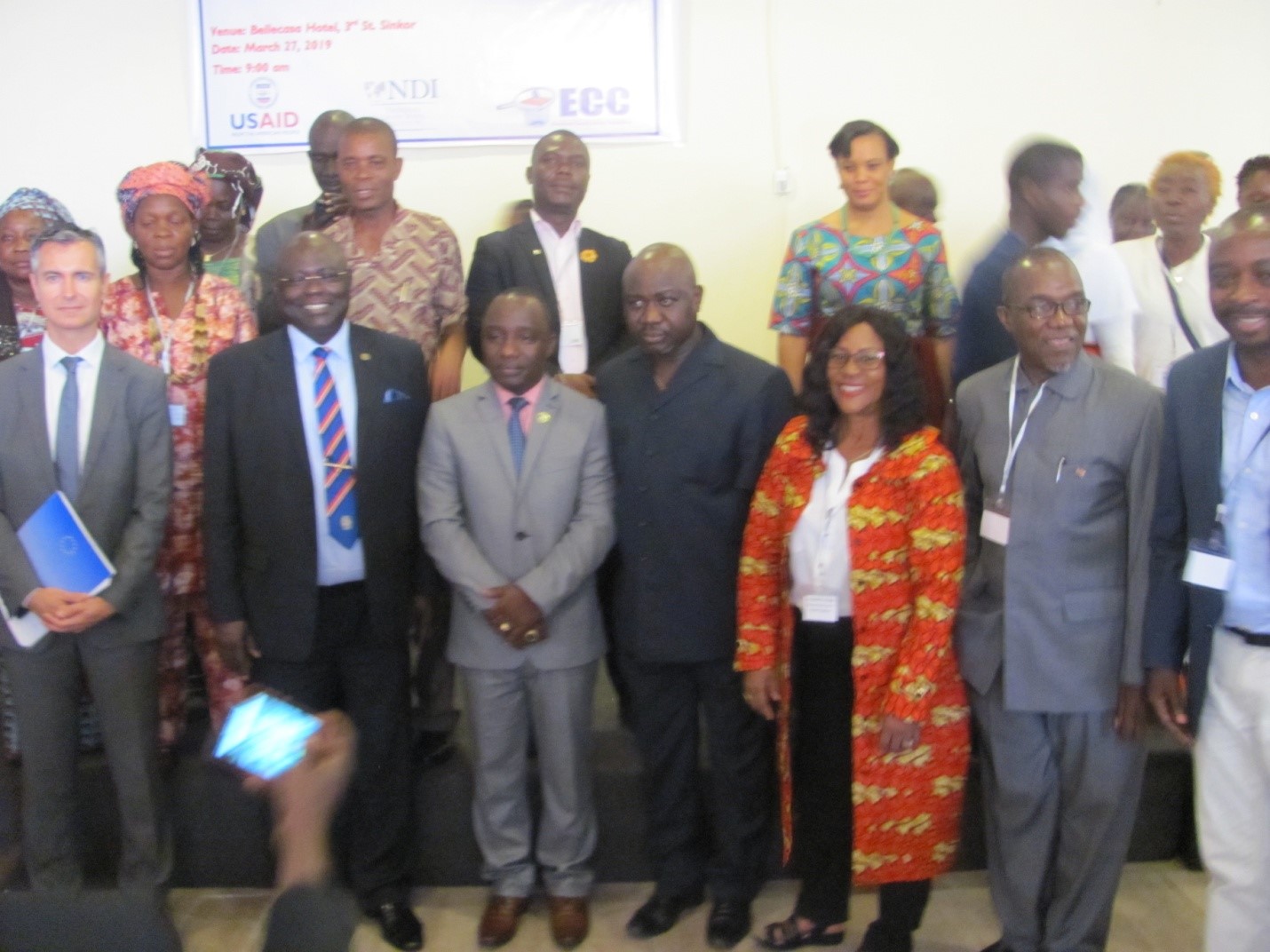-Advances other recommendations
By Augustine Octavius,augustineoctavius@gmail.com
A one-day national conference aimed at reforming the electoral laws has ended in Monrovia, with the adoption of a seven-count recommendation to be forwarded to the national legislature for consideration, including the teaching of civic education in schools.
The national conference, organized by the Elections Coordinating Committee on electoral reform is funded by the US-based National Democratic Institute (ND) and it was held under the theme: “Strengthening Liberia’s Democracy through Electoral Reform,”
Reading the resolution, a member of steering committee of the conference, Harold Aidoo said the conferees resolved that the national legislature should enact a law establishing an institution to conduct voter and civic education
The conferees comprising representatives of political parties, civil society organizations, women and youth groups, traditional and religious leaders, recommended that civic education be taught in schools.
The resolution also called on the government and international partners to invest in the introduction of biometric voters’ registration cards.
The conferees resolved that the government and international partners to also invest in the National Elections Commission early in order to start the process of the electoral calendar on time.
Meanwhile, the Election Coordinating Committee (ECC) is calling for total repeal of section 5.1 and 5.2 of the Code of Conduct and the amendment of the Liberian Constitution and the new election laws.
Sections 5.1 of the Code of Conduct bars all appointed officials not to engage in political activities , canvass or contest for elected offices; while Section 5.2 states that any person in the category states in Section 5.1 shall resign said post at leats two years prior to the date of such public elections.
Speaking at the open of a one day stakeholders national conference on electoral reform, ECC Executive Director, Atty. Oscar Bloh said though the code of conduct is an important document to regulate conduct and behaviors of public servants, that section 5.1 and 5.2 create unnecessary tension.
According to him, appointment of the board of commissioners of the National Elections Commission should not be solely left with the president and by consent by the senate but must be subjected to public vetting.
Atty. Bloh said when members of the board of commissioners of the electoral authority are vetted by members of the civil society organizations, their names will be submitted to the President for nomination and to the senate for approval.
The role of the ECC in electoral reform process is not to lead but to stimulate broad-based public discourse and to generate information from ordinary Liberians, he said.
Delivering the keynote speech, Deputy House Speaker, Prince Moye, pointed out that electoral reform is crucial to deepening the consolidation of democracy in the country.
He assured the ECC and the National Elections Commission for the development of all inclusive bills that will make the young democracy in the country more credible.
“The legislature pledges its commitment to working with the rest of the stockholders in making the necessary amendment before the 2023 presidential and legislative elections
Also speaking ECOWAS special representative to Liberia, Babatunde Ajisomo, stressed that voter education in any electoral process is key as such electoral reform will help in providing proper education to voters.
Ambassador Babatunde Ajisomo noted in order for electoral reform to be realized in any country, the proper use of technology must be cardinal.
For his part, the Charge’ d’ Affairs at the European Union, Juan Antonio Frutos, said the lesson learnt from previous elections must guide stakeholders in reforming the electoral laws to suit present day reality.
He re-affirmed the commitment of the EU in support the road map leading to the electoral reforms in Liberia.
The conference brought together representatives of political parties, civil society organizations, youth and women groups, traditional leaders, heads of the Inter Religious Council of Liberia and the media.

